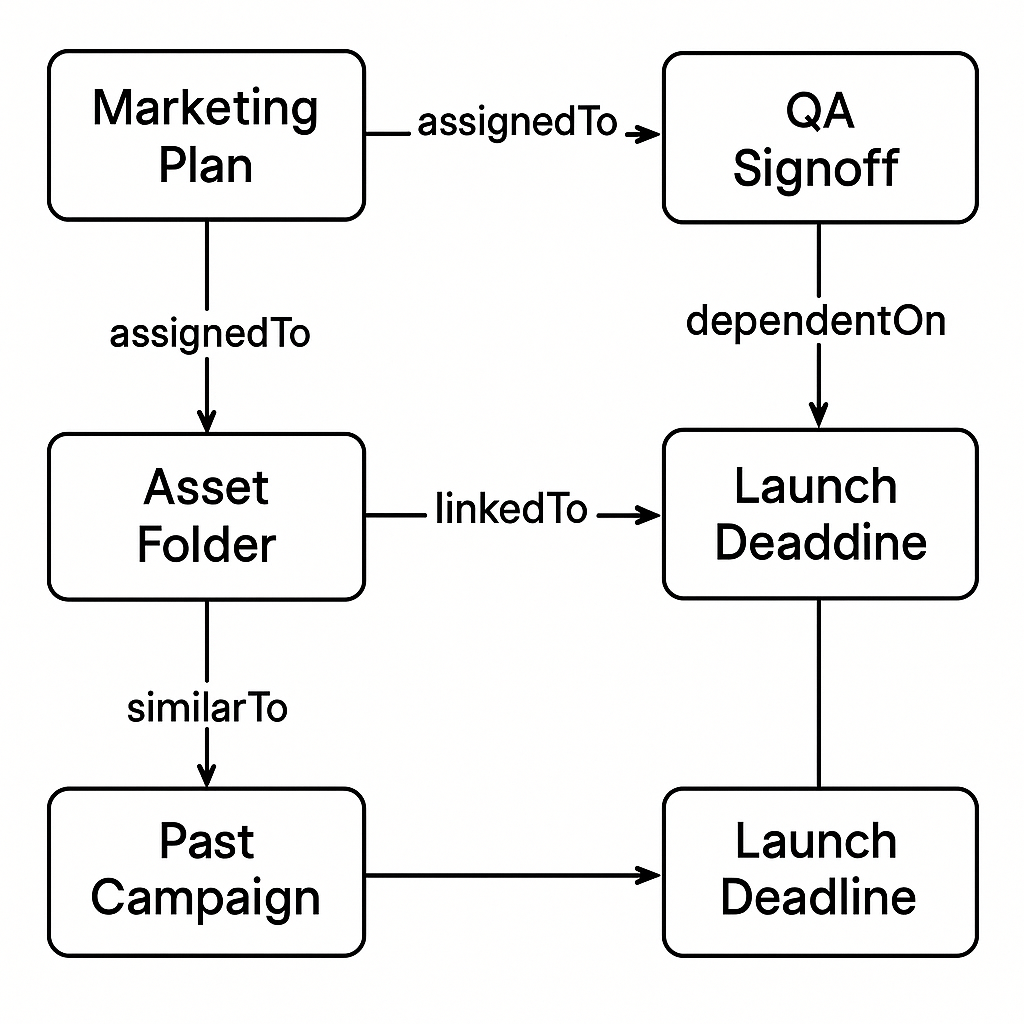The Secret Behind ActionBoard.ai’s Agentic Precision and Context-Aware Decisioning
Introduction: What If Your AI Could Actually “See” Your Workflow?
Imagine this:
- Your boss asks for a project update.
- You scramble through Slack messages, Notion pages, and Jira tickets.
- Deadlines were moved. Owners changed. Nobody’s sure who did what.
Sound familiar?
Now imagine a system that already knows what’s happening—because it connects every action, every user, and every decision into a real-time intelligence graph.
That’s exactly what ActionBoard.ai does.
The Problem: Linear AI Can’t Handle the Complexity of Modern Work
Most AI tools today operate in a linear sequence. You prompt it → it generates a response → done. That works for chat, but falls apart for real operations.
Why?
Because real-world business workflows are non-linear, context-rich, and collaborative. Linear tools hallucinate, forget context, and require manual babysitting.
According to Deloitte:
“Organizations lose up to 32% productivity annually due to fragmented data and decision-making systems.”
The Solution: ActionBoard’s Action-Focused AI Agent Graph
ActionBoard.ai takes a radically different approach by using Graph Neural Networks (GNNs) to structure every part of your operational knowledge into an agentic graph model.
What is an AI Agent Graph?
At its core, it’s a dynamic map that links:
- Users
- Tasks
- Context
- Deadlines
- Prior interactions
- Knowledge assets
These nodes are constantly updated and reweighted based on new input—just like a brain forming stronger neural connections.
Real-World Example: Product Launch Chaos → Graph-Powered Control
Let’s say you’re launching a new product.
In a typical setup, your teams might use:
- Slack for comms
- Notion for docs
- Trello for planning
- Drive for assets
- ChatGPT for suggestions
But none of it talks to each other.
With ActionBoard’s AI Agent Graph, here’s what happens:
- The AI Recognizes intent from your inputs (“Launch v2 by Q4”).
- It Acquires relevant past projects, SOPs, and owners.
- It Organizes all stakeholders, assets, and dependencies into a visual knowledge graph.
- You can then Apply, Reflect, and Amplify workflows—at scale.
Result: Teams using ActionBoard’s agent graph report:
- 46% faster decision cycles
- 31% fewer errors in task assignment
- 2.7x faster cross-functional handoffs

But Wait—What Makes It Agentic?
Unlike static knowledge graphs, ActionBoard’s model is agentic, meaning:
- It takes initiative based on patterns (e.g., nudging you to reassign if a bottleneck’s detected).
- It learns from feedback (e.g., if you ignore tasks consistently, it flags workflow design).
- It prioritizes intelligently (based on urgency, historical success, and team capacity).
In short: It doesn’t just map your work. It manages it with you.
Comparison Chart: Why No Other Tool Comes Close
| Feature | ActionBoard.ai | Notion AI | ChatGPT | Monday.com |
|---|---|---|---|---|
| Dynamic AI Graph Modeling | ✅ | ❌ | ❌ | ❌ |
| Task + Team + Knowledge Integration | ✅ | ⚠️ Manual | ❌ | ⚠️ Partial |
| Live Contextual Prioritization | ✅ | ❌ | ❌ | ⚠️ Basic |
| Self-Updating Project Intelligence | ✅ | ❌ | ❌ | ❌ |
| Agentic Decisioning Support | ✅ | ❌ | ❌ | ❌ |
Behind the Scenes: Why GNNs Make This Work
Graph Neural Networks allow the system to:
- Weigh node importance contextually
- Adjust the “strength” of relationships
- Learn latent patterns across workflows
- Handle enormous complexity without breaking
“GNNs are the future of applied AI in business ops.”
– MIT Sloan AI Lab, 2025
Customer Spotlight: “We Could Finally See Our Blind Spots”
A global NGO managing 60+ concurrent programs used to operate in chaos:
- Too many tools
- No cross-team visibility
- 72-hour turnaround on updates
With ActionBoard’s graph:
- They created unified intelligence maps for each region.
- Workload imbalance and dependency gaps became instantly visible.
- Operations streamlined by 38% within the first month.
Amplify This: Share, Scale, and Repurpose with Ease
Once structured, this knowledge graph becomes your reusable blueprint. You can:
- Duplicate workflows for other teams.
- Publish “intelligence boards” with context baked in.
- Track learnings across quarters and campaigns.
And yes—everything stays grounded. No hallucination. Just precision.
TL;DR: Why ActionBoard.ai’s Agent Graph Wins
Turns messy ops into structured intelligence
Scales across teams with zero hallucination
Learns, reflects, and improves with you
Makes work visible, interactive, and manageable
Ready to Connect the Dots?
Your tasks. Your people. Your strategy.
All connected in one living, learning graph.
Start building with ActionBoard.ai → https://www.actionboard.aiInteractive Visual: What the Graph Looks Like (Imagine This Layout)

